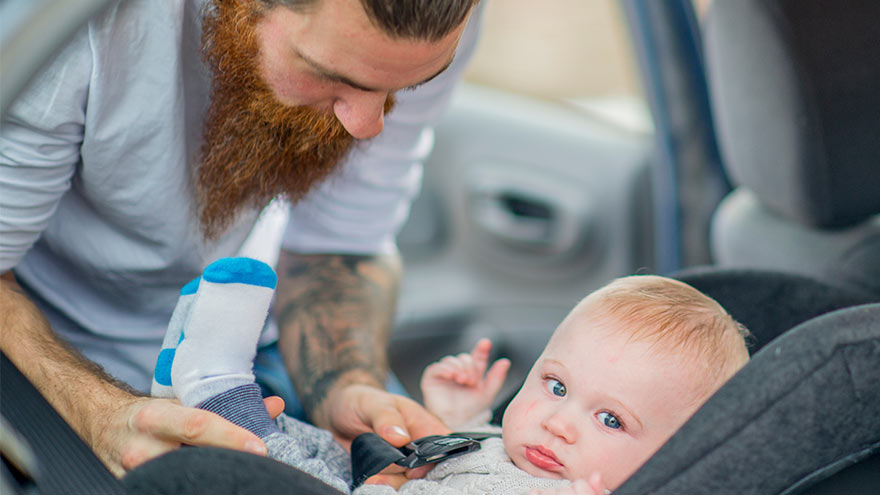Buscar
-
Managing Your Uncontrolled High Blood Pressure
Renown Health, the region's leading cardiology care provider, is offering a clinical trial for eligible patients struggling to control their high blood pressure. Nearly half of adults (119.9 million) in the United States have hypertension, or blood pressure that is higher than normal. Hypertension can put you at risk of other life-threatening disease, such as a heart attack or stroke. There are methods that cardiologists use to manage high blood pressure, but only 1 in 4 adults with hypertension (27.0 million) have their blood pressure under control.* Some patients with high blood pressure experience resistant hypertension, which does not respond well to multiple antihypertensive medications given at the same time. This means that there are many important opportunities for healthcare professionals to explore new ways to treat hypertension. At Renown Health, we lead the region in cardiology care with our technological expertise and patient-centered approach. That is why our cardiology team is partnering with the Renown Research Office to offer the RADIANCE Continued Access Protocol (RADIENCE CAP) clinical trial to eligible patients. RADIANCE CAP is a non-randomized study designed to allow for continued access to ultrasound renal denervation therapy via the Paradise System, and to allow for the on-going collection of safety and effectiveness data in patients with uncontrolled hypertension despite the prescription of antihypertensive medications. The body’s complex communication system between the brain, heart and kidneys can sometimes become overactive, increasing your blood pressure through messages in the nervous system. Renal denervation is a minimally-invasive procedure which reduces activity from the nerves in your kidneys to lower blood pressure. This is the third in a series of renal denervation clinical trials Renown Health has offered to patients with resistant hypertension over the last several years, with over 40 local participants. “All the participants that I have had the pleasure to work with on these studies are very excited and grateful to have this option for helping control their blood pressure” states Lisa English, Lead Clinical Research Coordinator for Cardiology studies at Renown Health. “I love getting to know each one of them and helping on their healthcare journey. We have an amazing team of providers and staff at Renown that go out of their way to make patients experiences positive and the studies successful.” Dr. Michael Bloch, Cardiologist and Principal Investigator for the RADIANCE CAP study at Renown Health’s Institute for Heart and Vascular Health adds, “Despite lifestyle modifications like diet and exercise and the widespread availability of effective and well-tolerated medications, approximately 50% of all people with hypertension have inadequate blood pressure control putting them at risk for stroke, heart failure and kidney disease. As a one-time durable procedure, renal denervation with the Paradise endovascular system from ReCor Medical, Inc. may help millions of patients improve their blood pressure control without necessarily needing to increase their medications.” Our teams of expert providers and researchers are here to support you on your healthcare journey. Talk to your provider about the RADIANCE CAP clinical trial at your next appointment to see if participation may be right for you.
Read More About Managing Your Uncontrolled High Blood Pressure
-
Multiple Sclerosis Research Opportunities in Northern Nevada
There are nearly 1 million adults living with MS in the United States alone. For comparison, that is roughly the entire population of the Reno/Sparks and Las Vegas areas combined. MS is a neurological autoimmune condition which means that the immune system of patients with MS attacks the body’s myelin, a protective substance that covers your nerves. When this happens, the unprotected nerves can be damaged. Patients with MS may experience many different symptoms ranging from mild to severe, such as mobility and vision problems, fatigue and difficulty thinking. MS is usually diagnosed between the ages of 20-50, but late onset MS can occur in patients over 50 years old. While there is no cure for MS, there are effective treatments that can help reduce the burden of patients’ symptoms and create a positive quality of life. At Renown Health, we have joined the fight against MS through a partnership between advanced neurology programs and providers and our research office. We are proud to offer newly diagnosed MS patients the opportunity to choose between standard care treatment options or participating in an open label clinical trial, the AGNOS study. This study is assessing the impact of a new medication, ofatumumab, as the first disease modifying therapy participants receive for managing relapsing remitting MS, the most common form of MS.
Read More About Multiple Sclerosis Research Opportunities in Northern Nevada
-
¿Qué significa participar en un estudio clínico?
Participating in a clinical trial is voluntary and a personal choice. Clinical trials are research studies that involve people and are an important part of patient care. What is a clinical trial? Clinical trials are research studies that involve people, and they are an important part of patient care. There are several different types of clinical trials; some are designed to understand trends in a disease or identify better ways to diagnose a condition, while others determine if a new treatment is safe and works when treating, improving or preventing a health condition. There are over 400,000 clinical trials currently being conducted in the United States, and even more across the world. This includes health conditions such as heart failure, cancer, Parkinson’s Disease, respiratory conditions like COPD, common infections, cystic fibrosis, and many more. Clinical trials lead the healthcare industry to new discoveries that contribute to reliable and exact care, improving healthcare quality and saving lives. Clinical trials are conducted by a team of researchers, including doctors, pharmacists and clinical research coordinators. These research teams are highly skilled in their specialty areas, often providing traditional patient care and seeing research patients in the same day. These teams are responsible for making sure the clinical trial is completed correctly, and their patients are their top priority. Why should I consider participating in a clinical trial? Participating in a clinical trial is voluntary and a personal choice. There are many reasons why patients decide to get involved in clinical research. While many clinical trials are designed for patients who have a certain health condition, many studies also ask healthy volunteers to contribute in order to compare health outcomes. Clinical trials are also for patients at all different stages of their diagnosis. Depending on the specific study, the patient may receive access to a new cutting-edge treatment before it is widely available. When patients join a clinical trial, the research team becomes a health partner dedicated to their health and well-being. When patients join a clinical trial, they make an informed decision in their healthcare by weighing all available options in addition to routine treatments. Research participants know that they are contributing meaningfully and helping other patients like them. Where can I find more information about clinical trials at Renown Health? Renown Health’s mission is to make a genuine difference in the health and well-being of the communities we serve. Renown’s clinical trial portfolio offers leading care options to patients in northern Nevada, close to home, in a variety of specialties. Contact the Renown Clinical Research Office for more information on clinical trials available to you!
Read More About What Does It Mean to Participate in a Clinical Trial?
-
Cómo cambiar el asiento para el automóvil de su hijo
Car seat technicians often find parents are moving their child to their next car seat stage too soon, as they get older. Here are a few reminders of when to transition your child from their booster seat to a seat belt. Moving to a booster seat too soon According to Safe Kids Worldwide, nearly 9 in 10 parents remove children from their booster before they’ve reached the recommended height, weight, or age of their car seat recommendations, which leaves the seat belt in a position on the child that could injure them. If the child is not the proper height, the seat belt can rise up on the belly, instead of the hips where it’s supposed to sit, which can lead to spinal cord damage or whiplash in the event of a car crash. Solution: You can switch from a car seat to a booster seat when your child has topped the weight allowed by the car seat manufacturer; typically 40 to 80 pounds (18 to 36 kilograms). Remember, however, that your child is safest remaining in a car seat with a harness for as long as possible. Booster seats must always be used with a lap and shoulder belt — never a lap-only belt. Transitioning to a safety belt too soon Older children need booster seats to help ensure the seat belt stays properly positioned on their body. The lap belt should lie low across the child's hips and pelvis with the shoulder belt crosses the middle of the child's chest and shoulder, so that in the event of a crash, the forces are applied to the hip bones and not the abdomen. If the lap belt is not positioned properly then it could lead to injuries to the spinal cord and abdominal organs. Solution: Most kids can safely use an adult seat belt sometime between ages 8 and 12. Always use a booster seat until the child passes the 6-step test Your child reaches a height of 4 feet, 9 inches (nearly 1.5 meters) Their back is flat against the seat back. Knees bend over the edge of the seat and feet are flat on the floor. The shoulder belt sits on their shoulder and chest (not face or neck.) The lap belt sits low on their hips and touches their upper thighs (not on their stomach.) Your child can sit comfortably this way for the entire trip. The American Academy of Pediatrics reminds us that the back seat is the safest place for children younger than age 13.
Read More About Transitioning Your Child Out of Their Car Seat
-
Conozca los tipos de asientos de automóvil
Parents often struggle with installing and choosing car seats for their children. Picking out a car seat for your child is a never-ending battle. Safe Kids Washoe County has made it simple for you to understand the types of car seats that will work for your child. Types of Car Seats Rear-Facing Only Seat. Your baby's first car seat is often used from 5 to 40 pounds. People usually buy this type of seat because it is portable. Convertible Car Seat. This seat is larger and stays in the car; it may be rear-facing until your child is two years or more. After that, it can change to a forward-facing seat. Forward-facing-only car seat. This type of seat is used in one direction and has a 5-point harness and top tether. Combination seat. This is a forward-facing seat with a 5-point harness and top tether and can change into a booster seat when you remove the harness. 3-in-1 car seat. This seat also stays in the car. You can use it rear-facing, forward-facing, and then later, as a booster seat. Booster seat. It boosts the child for a safer and more comfortable fit of the adult seat belt. Make sure your child has outgrown the weight or height limits allowed in the forward-facing car seat. The seat belt must lie flat across your child's chest, on the bony part of the shoulder, and low on the hips or upper thighs. Most children will be between the ages of 8 to 12 years old before they are ready for the seat belt alone. Have a trained car seat technician check your installation Why: 3 out of 4 car seats are installed improperly, with some studies show that the misuse rate is 90%, with the average car seat having three mistakes. Solution: Ensuring that your child's car seat is installed correctly by a certified car seat technician will ensure your child's safety.




